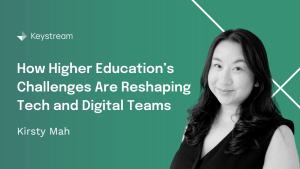03.08.2023
Effective Go-Live Support for EPR Implementations
When large scale clinical system implementations reach the critical ‘cut-over’ and ‘go-live phases’, it is essential to have the right levels of support available to staff. However, it is equally important for organisations to understand what this entails.
In my experience, most NHS organisations do not fully understand the complexity of and considerations that must be given to the training workstream for the life cycle of an EPR programme.
This often leads to issues around budgeting effectively for training programmes as well as cut over and go-live support services. Often, floorwalkers that are provided are only capable of escalating issues to the central control point within the ‘go-live’ command centre and do not have the necessary skills to enable effective troubleshooting to staff who need support.
A comprehensive gold standard approach, combined with a robust Super/Champion user programme will mean that organisations have staff in key areas that can act as effective support mechanisms at the crucial go-live period. This approach also leaves a legacy of support within the organisation, rather than losing knowledge once contracted resources have left the programme.
While using floorwalkers for at the elbow support can be effective, it may not always be the most efficient or comprehensive approach. Depending on the complexity of the product or service, and the needs of the client, using specialised SMEs for post-implementation support may be a more effective approach.
Post-Implementation Support & Transformation SMEs are subject matter experts who are experienced in providing support and guidance after a new system or process has been implemented. This approach can be beneficial because these experts can provide a deeper level of support and understanding than a typical floorwalker, who may not have the same level of technical or process expertise.
At go-live, the most experienced and knowledgeable people in your organisation are your training team. They will have spent Months preparing themselves and training your staff on how to use the new EPR. They will also be up to speed with local processes, which can vary from Trust to Trust.
Together with super users who have been given the necessary levels of training and support, you have SME’s already in place who can manage the floorwalking effort and understand at the point of escalation whether an issue is related to training or the system. This leads to a much speedier resolution and importantly, takes pressure off your IT Help Desk, who will be inundated with calls and emails requesting support.
You can then focus on utilising external floorwalking teams effectively by having them engage with staff and communicate important messages to them and guide them to support materials hosted on internal servers or your Learning Management System (LMS).
Ultimately, the most important thing is to ensure that organisations have access to the support and guidance they need to be successful in using a product or service. Whether that is through traditional floorwalkers or specialised SMEs, the key is to provide the right level of support at the right time.
Written by James Quirke – Director of Transformation and Engagement

